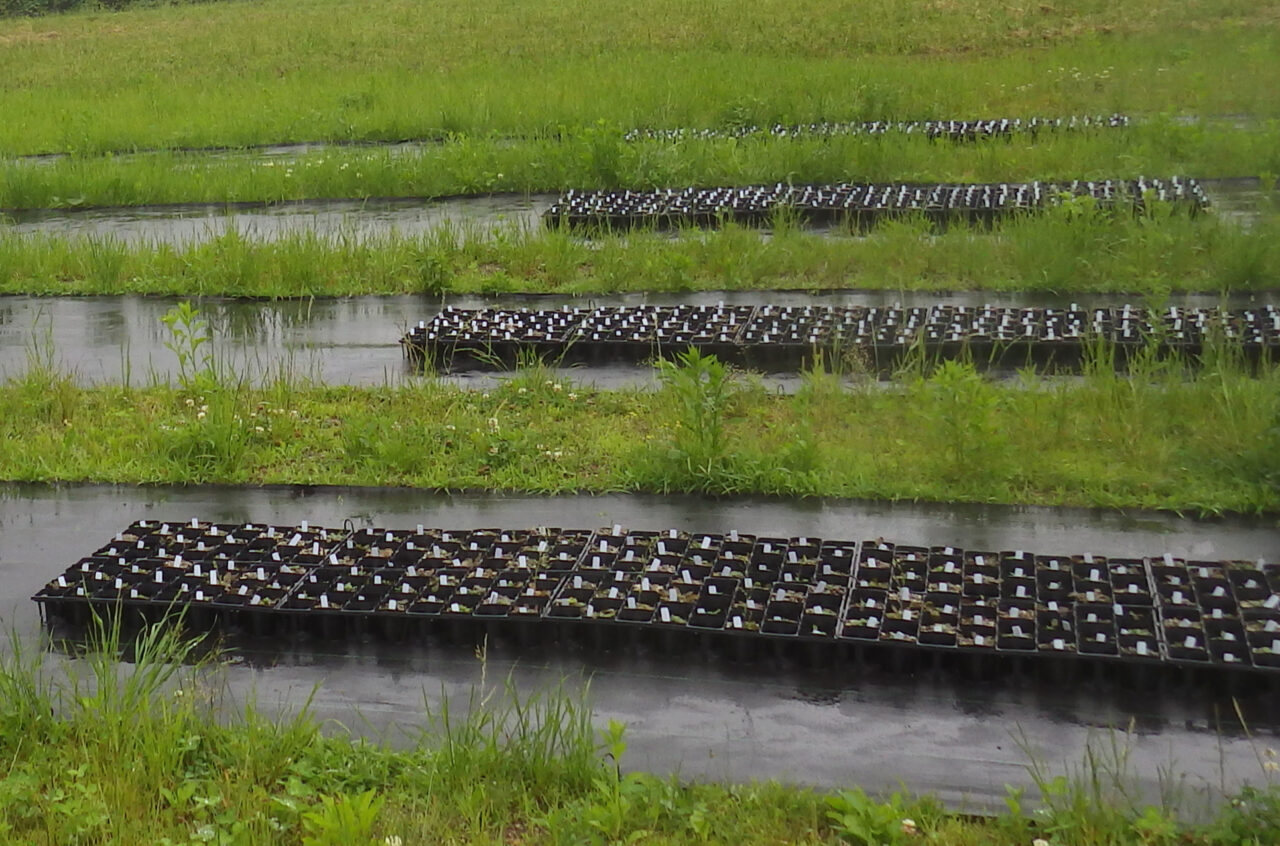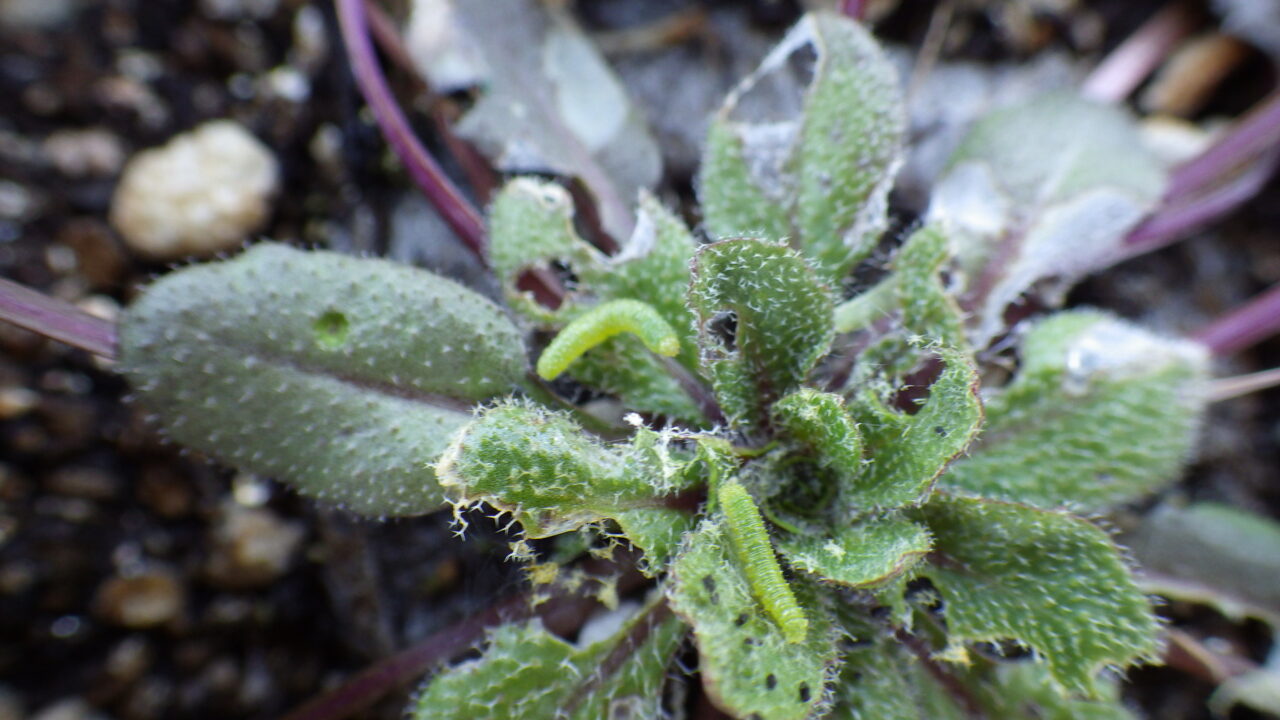Sato, YasuhiroAssistant Professor
We are interested in how genetic variation shapes, and is shaped by, biotic interactions. To analyze quantitative genetic variation in complex ecological traits, our research employs cutting-edge tools of computational biology and functional genomics. For example, we have been focusing on the following three topics: (i) Quantitative genetics of plant-plant interaction; (ii) Evolutionary ecology of anti-herbivore defense; and (iii) Data analysis in ecology, evolution, and genetics. Currently, we are working on plants and insects, but other projects involving biotic interactions are also welcome.
 Photograph of our field experiment using 200 natural accessions of Arabidopsis thaliana.
Photograph of our field experiment using 200 natural accessions of Arabidopsis thaliana.
 Arabidopsis thaliana plant attacked by insect herbivores in the field.
Arabidopsis thaliana plant attacked by insect herbivores in the field.
The primary aim of our mentoring is to foster scientific thinking about nature by studying plant ecological genetics. Based on the solid way of scientific thinking, you will be able to obtain innovative ideas and skills that can be transferred to applications such as agriculture and conservation biology. Please do not hesitate to contact us if you are interested in our research group. We look forward to working with you in science.
References
Detecting frequency-dependent selection through the effects of genotype similarity on fitness components. Y. Sato, Y. Takahashi, C. Xu, and K.K. Shimizu, Evolution, 2023, 77, 1145–1157. https://doi.org/10.1093/evolut/qpad028
Neighbor GWAS: incorporating neighbor genotypic identity into genome-wide association studies of field herbivory. Y. Sato, E. Yamamoto, K.K. Shimizu, and A.J. Nagano, Heredity, 2021,126, 597–614. https://doi.org/10.1038/s41437-020-00401-w
Optimal foraging by herbivores maintains polymorphism in defence in a natural plant population. Y. Sato, K. Ito, and H. Kudoh, Functional Ecology, 2017, 31, 2233-2243. https://doi.org/10.1111/1365-2435.12937
Herbivore-mediated interaction promotes the maintenance of trichome dimorphism through negative frequency-dependent selection. Y. Sato, and H. Kudoh, American Naturalist, 2017, 190, E67-E77. https://doi.org/10.1086/692603
Trans-Scale Biology of Plants: Integrating genomics, phenomics, and ecology to unveil biodiversity (in Japanese). Y. Sato, and T. Muranaka (eds.), Species Biology Series, 2023, Bun-ichi Sogo Shuppan, Tokyo, Japan. ISBN 978-4-8299-6210-7.
Faculty
Faculty of Environmental Earth Science
Section of Environmental Biology
Group of Ecological Genetics
Grad School
Graduate School of Environmental Science
Division of Biosphere Science
Ecological Genetics
Contact Information
Email: yassato ![[atmark]](https://www2.sci.hokudai.ac.jp/dept/bio/wp/wp-content/themes/sci-bio_2407/img/atmark.png) ees.hokudai.ac.jp
ees.hokudai.ac.jp
